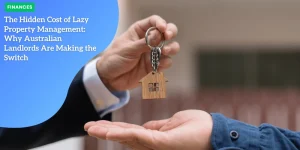The $40 Million Nicheliving Settlement: What Homeowners Need to Know
Anúncios
Unfinished Homes and Legal Struggle
Nicheliving’s venture into property development took a disheartening turn when it left hundreds of customers with unfinished homes.
This led to a legal battle with the government that stretched across years, engulfing homeowners in a turmoil of promises unmet and dreams deferred.
Many customers found themselves displaced and forced to live in alternate housing, a predicament both emotionally and financially taxing. Sarah and Braydn Munro, like countless others, spent years living at friends’ houses, their lives put on indefinite hold.
The Span of Displacement
For Kathy Ellis, what began as a brief family adventure turned into a drawn-out nightmare, as she and her family spent over twenty months in a camper trailer.
Such extended displacement underscores the profound impact on daily life and well-being. For many, seeing their future take shape became an elusive endeavor.
The Path Forward
Despite the prolonged hardship, there is now a sense of light at the end of the tunnel for these homeowners.
The settlement, albeit controversial, presents an opportunity for them to finally move forward and restore some semblance of normalcy.
As we delve deeper into the settlement terms, we aim to understand the broader implications and how homeowners might rebuild their lives.
Terms of the Settlement
Building License Surrender
Nicheliving’s settlement with the government has resulted in the surrender of its building license for the next ten years.
This decision concludes a protracted legal battle and aims to prevent further harm by stopping the company from operating as builders.
For those affected, this is a measure intended to restore trust and ensure adherence to industry standards, although it has not been without controversy.
Directors Barred
Directors Ronnie Michel-Elhaj and Paul Bitdorf are now officially barred from re-registering as builders under any name.
This significant restriction is perceived as a corrective step, reflecting the seriousness of the situation.
By limiting their professional activities in construction, it sets a precedent within the industry.
Yet, it doesn’t preclude them from engaging in related sectors, like real estate, which has raised eyebrows.
Absence of Fines
One notably contentious aspect of the settlement is the absence of any fines or legal pursuit by insurers against Michel-Elhaj and Bitdorf.
Critics argue that this decision implies a lack of accountability, positioning it as a potential ‘bailout’ for Nicheliving.
Homeowners, left with incomplete homes and personal upheaval, see this as an insufficient response to the magnitude of their losses.
As the settlement stands, it seeds further complexities and concerns about justice and oversight in the industry.
Financial Implications for Taxpayers
The Nicheliving settlement has left taxpayers with a hefty bill.
It’s estimated that $40 million will be needed to complete the homes left unfinished by the company.
Despite the considerable expense, Nicheliving won’t contribute to the costs, sparking frustration and accusations of a “bailout” for the business.
Who Bears the Cost?
- Taxpayers: The financial burden falls on taxpayers, with funds used to finish construction of the 200 incomplete homes.
- No Contribution from Nicheliving: The company, which reportedly maintains significant assets, will not pay towards the resolution costs.
Criticisms of the Settlement
Critics, including Shadow Housing Minister Steve Martin, argue that the deal essentially lets Nicheliving off the hook without adequate accountability measures in place.
The lack of fines or legal actions against directors Ronnie Michel-Elhaj and Paul Bitdorf is seen by many as a failure to enforce responsibility.
Public Reaction
The public’s discontent is palpable, as many argue that Nicheliving, with its reported $100 million in assets, should be contributing to the remedy.
People are questioning the effectiveness of current regulations, especially when individuals like Michel-Elhaj and Bitdorf can still operate in the real estate industry, albeit in different roles.
It’s a situation that leaves taxpayers frustrated and concerned about the implications for future oversight and accountability in the building industry.
As homeowners continue to seek solutions, there’s an ever-present need to address these financial burdens and restore trust.
Impact on Affected Homeowners
Access to Home Indemnity Insurance
For homeowners caught in the Nicheliving crisis, there is now a lifeline: access to up to $200,000 through the Home Indemnity Insurance Scheme.
This measure provides much-needed financial support to those left with half-built homes, giving them the chance to finally see their properties completed.
However, this isn’t a straightforward process. Homeowners must navigate substantial paperwork to access these funds.
Hiring New Builders
With funds in hand, affected homeowners can explore hiring other builders to finish their homes.
This opportunity offers hope and a path forward for families who have faced prolonged uncertainty.
The ability to choose new, reliable builders is a crucial step towards restoring stability and ensuring homes are completed to satisfactory standards.
Prolonged Displacement and Personal Hardships
The settlement allows hope, but for many, it comes after years of hardship.
Families like the Munros and the Ellises have endured significant displacement, living in temporary setups like camper trailers while waiting for resolutions.
This period has been marked by personal and financial strain as they waited for their dreams of homeownership to materialize.
These challenges highlight the human cost behind the crisis and underscore the continuing impact on their daily lives.
The journey towards completion remains complex, leaving room to consider broader implications in the industry’s landscape.
Future Concerns and Considerations
Active Presence in the Property Sector
Despite the building ban imposed on former Nicheliving directors Ronnie Michel-Elhaj and Paul Bitdorf, they remain active in the property sector.
This is a point of concern for many, as they continue to explore real estate opportunities through new ventures.
Their recent launch of the Australian Property Alliance, with Bitdorf holding a real estate agent’s license, raises eyebrows among those impacted by their previous failures.
This move indicates that, while barred from building, they still maintain influence in the property industry.
New Real Estate Endeavors
The creation of the Australian Property Alliance represents a strategic shift for the former directors.
By pivoting into real estate, they seem to sidestep the restrictions of their building license ban.
However, this maneuver has spurred discussions about the ethics of their continued participation in real estate activities.
It underscores the complexities and potential loopholes within industry regulations that could allow former builders to maintain a presence.
Legal Action Considerations
Given the circumstances, some affected homeowners are considering further legal actions.
The settlement agreement left many dissatisfied, and the reactions are mixed regarding whether enough justice has been served.
The prospect of reopening legal battles looms as a path forward for some, hoping to hold accountable those they feel have wronged them.
This potential for ongoing litigation highlights the lingering discontent and desire for more robust accountability mechanisms.
As stakeholders and policymakers reflect on these developments, the real challenge lies in safeguarding against similar situations in the future.
Understanding these ongoing dynamics is crucial for strengthening the system and protecting the interests of homeowners.







